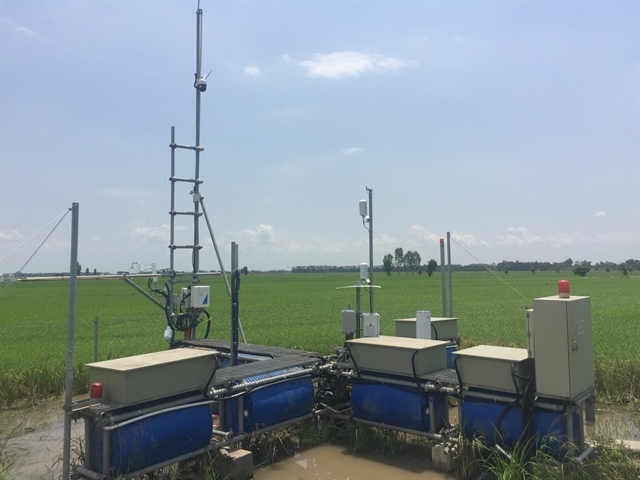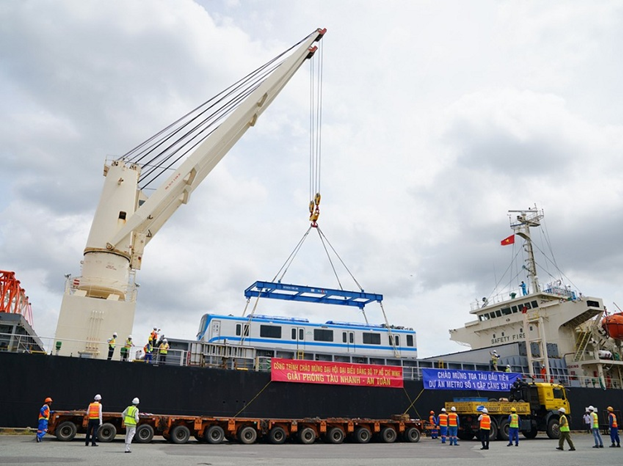 Society
Society

The University of Science under the Vietnam National University-HCM City has set up the first greenhouse gas monitoring station in the buffer zone of the Láng Sen Wetland Reserve in the Mekong Delta province of Long An.

|
| The University of Science under the Vietnam National University-HCM City has set up the first greenhouse gas monitoring station in the buffer zone of Láng Sen Wetland Reserve in the Mekong Delta province of Long An. — Photo courtesy of the University of Science |
HCM CITY — The University of Science under the Vietnam National University-HCM City has set up the first greenhouse gas monitoring station in the buffer zone of the Láng Sen Wetland Reserve in the Mekong Delta province of Long An.
The station was set up with the co-operation of the university, Global Change Research Institute and the Czech Academy of Science - CzechGlobe.
The station uses the eddy-covariance (EC) method which is widely applied in flux research stations for different types of ecosystems around the world. It quantifies the greenhouse gas balance and studies the dynamics of flux exchange under the changing climate and environment of irrigated rice fields in the Mekong Delta.
The station officially began operating last month.
Nguyễn Xuân Vinh, the station’s deputy head, said the equipment automatically collects and measures data on solar radiation, rainfall, soil and air temperature, humidity, water level, and soil heat flux.
The data are transferred to the Research Centre for Greenhouse Gas and Climate Change at the University of Science.
Monitoring for a sufficiently long period in paddy rice fields can provide enough information to help understand the carbon balance in the wetland ecosystem.
The ecosystem of paddy rice fields accounts for the largest area in the buffer zone of the Láng Sen Wetland Reserve, and contributes to discharge of greenhouse gas.
Under the impact of climate change and rising sea levels, rice farming systems in the Mekong Delta have become hotpots of high vulnerability, and need to urgently adapt to climate change.
More extreme events due to climate change such as droughts and heat waves have affected the carbon cycle.
Data on greenhouse gas in the past was insufficient to develop strategies and methods for control.
In the upcoming time, other stations for greenhouse gas monitoring will be set up in other areas of the Láng Sen Wetland Reserve.
At a ceremony to open the first greenhouse gas monitoring station, held at the University of Science on May 9, the university signed agreements with Long An Province’s Department of Science and Technology and HCM City University of Natural Resource and Environment to strengthen research and education related to climate change. — VNS




